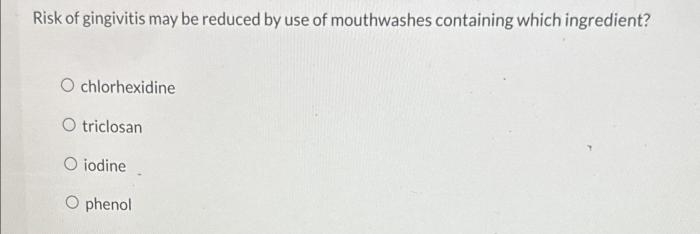10 useful tips for people who have sensitive teeth. Dealing with tooth sensitivity can be a real pain, literally! This post dives deep into understanding the causes of sensitive teeth, offering practical solutions ranging from dietary adjustments to professional treatments. We’ll cover everything from the foods to avoid to the best brushing techniques, plus some surprising lifestyle factors that might be contributing to your discomfort.
Let’s explore these 10 helpful tips to get your smile back on track!
Tooth sensitivity isn’t just a minor annoyance; it can significantly impact your daily life, affecting your eating habits and even your overall well-being. Understanding the root causes, like enamel erosion or exposed tooth roots, is key to finding effective relief. This comprehensive guide will equip you with the knowledge and tools to take control of your sensitive teeth, offering a range of solutions from simple lifestyle changes to professional dental interventions.
Introduction to Sensitive Teeth

Sensitive teeth are a common dental issue that affects millions worldwide. They are characterized by a heightened response to certain stimuli, making everyday activities like eating cold or hot foods, or even brushing, uncomfortable. This sensitivity often arises from exposed tooth roots or dentin, the layer beneath the enamel. Understanding the different types and underlying causes of tooth sensitivity is crucial for effective treatment and management.The discomfort associated with sensitive teeth can range from mild annoyance to significant pain.
This sensitivity is often triggered by external factors, but can also stem from underlying dental issues. Identifying the specific type of sensitivity is key to pinpointing the source of the problem and choosing the most appropriate solution.
Types of Tooth Sensitivity
Tooth sensitivity manifests in various forms, each with its own set of triggers and symptoms. Recognizing these different types helps in accurately diagnosing and treating the issue.
Thermal Sensitivity
Thermal sensitivity involves a painful response to temperature changes. Hot and cold foods and beverages are the most common culprits. This type of sensitivity often arises from exposed dentin, as the lack of enamel protection allows temperature fluctuations to directly affect the underlying nerve endings.
Chemical Sensitivity
Chemical sensitivity occurs when the teeth react to acidic substances. Foods and drinks high in acidity, such as citrus fruits, soda, and even some alcoholic beverages, can irritate the exposed dentin, triggering discomfort. This type of sensitivity is frequently linked to erosion of enamel and gum recession.
Tactile Sensitivity
Tactile sensitivity is a reaction to pressure or touch. Brushing, flossing, or even certain chewing motions can be painful for those with tactile sensitivity. This sensitivity can stem from gum recession, exposed roots, or underlying dental problems like cavities.
Understanding the Causes of Tooth Sensitivity
Precisely identifying the root cause of tooth sensitivity is crucial for implementing an effective treatment plan. Ignoring the underlying issue might lead to recurring problems and worsen the condition.
| Sensitivity Type | Cause | Symptoms | Possible Solutions |
|---|---|---|---|
| Thermal | Exposed dentin, gum recession, cracked tooth | Pain upon contact with hot or cold substances | Desensitizing toothpaste, fluoride treatments, dental fillings, dental crowns |
| Chemical | Enamel erosion, gum recession, acidic foods and drinks | Pain upon contact with acidic substances | Avoiding acidic foods and drinks, using a straw, fluoride treatments, dental fillings, dental crowns |
| Tactile | Gum recession, exposed roots, cavities | Pain upon brushing, flossing, or chewing | Desensitizing toothpaste, fluoride treatments, scaling and root planing, dental fillings, dental crowns |
Dietary Considerations for Sensitive Teeth

Maintaining healthy teeth is crucial for overall well-being, and sensitive teeth can significantly impact daily life. Understanding the foods and drinks that trigger sensitivity is the first step towards managing this condition effectively. By making conscious dietary choices, you can significantly reduce discomfort and keep your smile vibrant.
Common Sensitivity Triggers
Certain foods and beverages contain acids that can erode tooth enamel, the protective layer of your teeth. This erosion exposes the underlying dentin, which is more sensitive to temperature changes, pressure, and even certain foods. Regular consumption of these triggers can lead to persistent sensitivity, affecting your ability to enjoy your favorite meals.
Modifying Dietary Habits
Avoiding or minimizing consumption of acidic foods and drinks can help protect your tooth enamel and alleviate sensitivity. Gradual adjustments to your diet are key, allowing your body to adapt and minimizing potential discomfort. Rinsing your mouth with water after consuming acidic foods can help neutralize the acids and reduce their impact. Chewing sugar-free gum after meals can also stimulate saliva production, which helps wash away food particles and neutralize acids.
Acidic Foods and Beverages
Acidic foods and drinks are major contributors to tooth enamel erosion. The high acidity in these items directly weakens the enamel, increasing the risk of sensitivity. Examples include citrus fruits (oranges, lemons, grapefruits), carbonated drinks, and even some vinegars. It’s crucial to understand the impact of these items on your oral health.
Looking for ways to soothe those sensitive teeth? Ten helpful tips are a great starting point, but sometimes we get bogged down in the “shoulds” and “musts”. Instead of setting goals for the year, try promising yourself actions. For example, commit to brushing twice a day, and using a soft-bristled toothbrush, and implementing those promises, like outlined in this insightful article on taking action instead of setting goals, don’t set goals this year make promises take action , will help you tackle those tooth sensitivity issues.
Remember, small, consistent actions are key to long-term oral health.
Foods and Drinks to Avoid or Consume in Moderation
To manage tooth sensitivity, it’s essential to be mindful of your dietary choices. Certain foods and drinks are particularly damaging to tooth enamel and should be consumed sparingly or avoided altogether.
Dietary Recommendations
| Food/Drink | Impact on Enamel | Potential Sensitivity | Alternative Options |
|---|---|---|---|
| Citrus fruits (oranges, lemons, grapefruits) | High acidity, can erode enamel | Significant sensitivity, especially if consumed frequently | Consume in moderation, rinse mouth with water afterward |
| Carbonated drinks (soda, sparkling water) | High acidity, can erode enamel | Moderate to high sensitivity, depending on frequency | Choose water, unsweetened tea, or milk alternatives |
| Vinegars (balsamic, apple cider) | High acidity, can erode enamel | Potential for sensitivity, particularly if consumed frequently | Use sparingly, rinse mouth with water afterward |
| Highly acidic juices (cranberry, pineapple) | High acidity, can erode enamel | Significant sensitivity, especially if consumed frequently | Dilute with water, rinse mouth with water afterward |
| Sugary snacks (candy, cookies) | Can promote bacterial growth, contributing to enamel erosion | Can exacerbate sensitivity in combination with acids | Choose healthier alternatives, eat in moderation, and rinse your mouth with water |
Oral Hygiene Practices for Sensitive Teeth
Taking care of sensitive teeth requires a different approach than caring for healthy teeth. Understanding the nuances of brushing and flossing, along with selecting the right tools and products, is crucial for managing discomfort and protecting your enamel. This section dives into the specifics of oral hygiene tailored for those with sensitive teeth.Proper oral hygiene practices are essential for maintaining healthy gums and teeth, and this is especially true for those with sensitive teeth.
By adopting these practices, you can reduce the frequency and intensity of sensitivity episodes.
Proper Brushing Techniques for Sensitive Teeth
Effective brushing techniques are vital for sensitive teeth. Harsh brushing can irritate exposed dentin, exacerbating sensitivity. Focus on gentle, circular motions, avoiding aggressive scrubbing. Use a soft-bristled toothbrush and apply light pressure. Concentrate on short, gentle strokes, aiming to clean each tooth surface without applying excessive force.
Selecting Soft-Bristled Toothbrushes and Appropriate Toothpaste
Selecting the right tools is paramount. A soft-bristled toothbrush is a must for sensitive teeth, as it minimizes the risk of abrasion. Look for toothbrushes with a small head, which can make it easier to access hard-to-reach areas. Choose a toothpaste specifically formulated for sensitive teeth. These toothpastes often contain desensitizing agents like potassium nitrate or strontium chloride, which help to block the transmission of pain signals.
The Role of Fluoride in Protecting Tooth Enamel and Reducing Sensitivity
Fluoride plays a critical role in strengthening tooth enamel, which is essential for preventing sensitivity. Fluoride helps remineralize weakened enamel, making it more resistant to damage. Many toothpastes and mouthwashes contain fluoride, which you should incorporate into your routine. Look for products with an appropriate fluoride concentration for your needs.
Optimal Frequency of Brushing and Flossing
Brushing twice daily for two minutes each time, and flossing once daily, is crucial for optimal oral health, regardless of sensitivity. This ensures that food particles and plaque are effectively removed, preventing the buildup that can lead to irritation and sensitivity. Maintaining this consistent schedule is key to preventing issues and maintaining healthy teeth.
Sensitive Teeth Brushing Routine
Here’s a step-by-step guide to create a sensitive teeth brushing routine:
| Step | Action | Rationale | Example Technique |
|---|---|---|---|
| 1 | Wet the toothbrush. | This helps to create a better grip and spread the toothpaste evenly. | Run the toothbrush under lukewarm water. |
| 2 | Apply a pea-sized amount of sensitive-teeth toothpaste. | Using the correct amount of toothpaste ensures effective cleaning without over-application. | Place a small amount of toothpaste onto the brush head. |
| 3 | Gently brush each tooth surface using short, gentle strokes. | This prevents abrasion and irritation of sensitive areas. | Brush the outer, inner, and chewing surfaces of each tooth, using gentle circular motions. |
| 4 | Brush your tongue. | Cleaning your tongue helps remove bacteria and freshen breath. | Brush your tongue gently in a backward motion, from the back to the front. |
| 5 | Rinse your mouth thoroughly with water. | This removes any remaining toothpaste and food particles. | Rinse your mouth with plain water. |
| 6 | Floss daily. | Flossing helps remove plaque and food particles from between teeth, where brushing can’t reach. | Use waxed or unwaxed floss to gently slide between each tooth. |
Over-the-Counter Remedies and Products
Dealing with sensitive teeth can be frustrating, but thankfully, many over-the-counter solutions can provide relief. These products, often formulated with desensitizing agents, can help reduce the pain and discomfort associated with tooth sensitivity. Understanding the different types and their mechanisms of action is key to choosing the right product for your needs.Over-the-counter desensitizing toothpastes are a common and often effective approach to managing tooth sensitivity.
These products typically contain ingredients designed to block or reduce the transmission of pain signals from the exposed tooth dentin to the nerve endings. By using these products consistently and correctly, you can significantly reduce sensitivity and improve your oral health.
Desensitizing Toothpastes
Various brands offer over-the-counter toothpastes specifically formulated for sensitive teeth. Choosing the right one often involves considering the active ingredients and their mechanisms of action. The effectiveness of these products can vary from person to person, and what works for one may not work for another. Careful selection and consistent use are crucial for optimal results.
Comparing Different Brands
Several brands offer a range of desensitizing toothpastes. Comparing these products based on their active ingredients, mechanisms of action, and potential side effects can help you make an informed decision. Look for products with ingredients clinically proven to address sensitivity. Consider the ingredients and their potential benefits in managing your specific needs.
Desensitizing Agents
Desensitizing agents are the key ingredients in many sensitive-tooth toothpastes. These agents work in various ways to reduce sensitivity. Some agents, like potassium nitrate, help constrict the blood vessels in the dentin, reducing the transmission of pain signals. Others, such as strontium chloride, form a protective layer over the exposed dentin tubules. This layer can effectively block the stimuli that cause sensitivity.
Understanding these different mechanisms helps to tailor your choice of toothpaste to your specific needs.
How to Use Desensitizing Toothpastes Effectively
Proper usage is essential for maximizing the effectiveness of desensitizing toothpastes. Use a pea-sized amount of toothpaste, and brush gently for two minutes, twice daily. Avoid brushing too hard, as this can irritate the gums and exacerbate sensitivity. Follow the instructions provided by the manufacturer, and if you experience any adverse reactions, discontinue use and consult your dentist.
Consistent use is crucial for long-term results.
Product Comparison Table
| Product | Active Ingredients | Mechanism of Action | Potential Side Effects |
|---|---|---|---|
| Sensodyne | Potassium Nitrate | Constricts blood vessels in dentin, reducing pain transmission. | Possible temporary discoloration of teeth, mild tingling sensation. |
| Colgate Sensitive | Stannous Fluoride | Forms a protective layer over exposed dentin tubules. | Possible temporary staining of teeth, mild enamel erosion with overuse. |
| Sensodyne Pronamel | Fluoride | Strengthens tooth enamel, reducing sensitivity. | Generally well-tolerated, but possible enamel erosion with overuse. |
| Sensodyne Repair & Protect | Potassium Nitrate and other ingredients | Combination of ingredients for comprehensive sensitivity relief. | Possible temporary discoloration of teeth, mild tingling sensation. |
Professional Dental Treatments for Sensitivity
Dealing with tooth sensitivity can be frustrating, impacting your daily life and enjoyment of food and drinks. Fortunately, various professional dental treatments can effectively manage and alleviate this discomfort. These treatments, often performed by a dentist, go beyond home remedies and offer long-term solutions tailored to the specific cause of your sensitivity.Professional treatments provide a more comprehensive approach to addressing tooth sensitivity, addressing the underlying issue rather than just masking the symptoms.
They’re particularly beneficial for those who experience severe or persistent sensitivity, or when home remedies haven’t provided sufficient relief. A dentist will meticulously evaluate your situation to determine the best course of action, ensuring optimal results and minimizing potential risks.
Looking for 10 useful tips for sensitive teeth? It’s all about finding the right routine, and sometimes that means taking a broader look at your overall well-being. Just like how asking these 5 questions can get you the best shape your life can impact your approach to everything, understanding your unique needs and potential sensitivities is key to effective oral care.
Ultimately, a holistic approach, whether it’s through mindful habits or a deeper self-evaluation, will help you maintain optimal oral health.
Fluoride Treatments
Fluoride treatments are a common and often effective initial step in managing tooth sensitivity. Fluoride strengthens tooth enamel, making it more resistant to acids and irritants. This, in turn, reduces the likelihood of dentin exposure, a major contributor to tooth sensitivity. Professional fluoride applications, administered by a dentist, are typically more potent and longer-lasting than at-home fluoride products.
The enhanced concentration of fluoride allows for deeper penetration into the enamel, promoting its remineralization and strengthening.
Dental Bonding
Dental bonding is a restorative procedure that can address tooth sensitivity stemming from exposed dentin. In this procedure, a composite resin material is applied to the affected area, effectively covering the exposed dentin and providing a protective layer. This procedure is particularly useful for minor chips, cracks, or worn-down areas of teeth that are causing sensitivity. The resin material is carefully sculpted to match the natural tooth color, ensuring a natural-looking restoration.
However, bonding may not be suitable for extensive damage or deep decay.
Gum Therapy
Gum recession, where the gum tissue pulls back from the tooth, can expose the dentin and lead to sensitivity. Gum therapy aims to halt or reverse gum recession and protect the tooth root. Techniques may include scaling and root planing to remove plaque and tartar buildup, and in more severe cases, gum grafting to regenerate lost gum tissue.
The effectiveness of gum therapy varies depending on the severity of gum recession and the patient’s response to treatment. This treatment often requires multiple appointments and a consistent follow-up care plan.
Comparison of Treatments, 10 useful tips for people who have sensitive teeth
Different treatments for tooth sensitivity cater to diverse underlying causes. Fluoride treatments primarily address enamel weakness, while dental bonding is better suited for repairing minor structural damage. Gum therapy, on the other hand, targets the root cause of sensitivity linked to gum recession. A dentist will carefully assess the situation to recommend the most appropriate and effective treatment.
Table of Professional Dental Treatments for Sensitivity
| Treatment | Procedure | Expected Outcome | Potential Risks |
|---|---|---|---|
| Fluoride Treatments | Application of a concentrated fluoride solution to the teeth. | Strengthened enamel, reduced sensitivity. | Potential for tooth discoloration in some cases, mild discomfort. |
| Dental Bonding | Applying composite resin to exposed dentin areas. | Protection of exposed dentin, improved tooth aesthetics. | Potential for sensitivity to resin material, limited lifespan compared to some restorations. |
| Gum Therapy | Scaling and root planing, or gum grafting to address gum recession. | Regeneration of gum tissue, protection of the tooth root, reduced sensitivity. | Potential for infection, discomfort, and longer treatment duration. |
Preventing Future Sensitivity
Keeping your teeth healthy and preventing sensitivity requires proactive steps. A proactive approach involves understanding the root causes of sensitivity and implementing consistent habits that support long-term oral health. This is not just about managing existing pain, but establishing a foundation for a lifetime of healthy smiles.Maintaining a healthy lifestyle and oral hygiene routine are crucial to preventing future tooth sensitivity.
Ignoring potential contributing factors can lead to recurring problems. Regular dental checkups and cleanings, combined with conscious dietary choices, are fundamental for preventing sensitivity. Consistent effort in these areas can significantly reduce the risk of future issues.
Dietary Considerations for Prevention
A balanced diet plays a vital role in overall health, including oral health. Avoiding foods and drinks that can irritate exposed tooth dentin is essential for preventing future sensitivity. Identifying triggers, such as extremely hot or cold foods and drinks, acidic foods and drinks, and sugary snacks, is important. Making conscious choices about what you consume can significantly impact the health of your teeth.
- Limit the intake of highly acidic foods and beverages, such as citrus fruits, sodas, and vinegar-based dressings. These can erode tooth enamel, increasing the risk of sensitivity.
- Consume foods rich in calcium and phosphorus, which are vital for maintaining strong tooth enamel. Examples include dairy products, leafy green vegetables, and fortified foods.
- Be mindful of sugary foods and drinks. Frequent consumption can contribute to tooth decay, a common factor in developing sensitivity.
- Use a straw to minimize direct contact of acidic drinks with your teeth.
Oral Hygiene Practices for Prevention
Maintaining good oral hygiene is essential for preventing future tooth sensitivity. A consistent routine, encompassing brushing and flossing techniques, can significantly reduce the risk of irritation and damage.
- Use a soft-bristled toothbrush and gentle brushing techniques. Harsh brushing can damage gums and expose tooth roots, increasing sensitivity.
- Floss daily to remove plaque and food particles from between teeth, preventing the build-up of bacteria that can contribute to tooth decay and gum disease.
- Consider using a fluoride toothpaste, which strengthens tooth enamel and helps prevent cavities. This is an effective method to support the health of your teeth.
- Pay attention to proper brushing and flossing techniques. Improper techniques can irritate the gums and expose tooth roots.
Regular Dental Checkups and Cleanings
Regular dental visits are critical for proactive oral health management. Early detection and treatment of potential problems can prevent sensitivity from worsening.
- Schedule regular dental checkups and cleanings every six months to identify and address potential issues early. Early detection of problems allows for prompt treatment, minimizing the severity of the problem.
- Dental professionals can identify contributing factors to sensitivity and recommend appropriate treatments. This allows for a personalized approach to addressing sensitivity.
- Regular cleanings remove plaque and tartar buildup, which can irritate gums and expose tooth roots.
- A dental professional can offer guidance on proper brushing and flossing techniques, ensuring maximum effectiveness and minimal risk of further damage.
Healthy Lifestyle for Prevention
A healthy lifestyle significantly impacts oral health. Factors such as stress, diet, and hydration all play a role in the well-being of your teeth.
Dealing with sensitive teeth can be a real pain, but luckily there are tons of helpful tips out there. For example, learning how to build trust, as detailed in this article about 8 quick tips for gaining trust, as told by an FBI agent herere 8 quick tips gain trust told fbi agent , can actually translate into better oral hygiene habits.
Ultimately, these 10 useful tips can help you keep your teeth healthy and happy.
- Manage stress levels through relaxation techniques, such as meditation or yoga. Stress can negatively affect the body, potentially impacting oral health.
- Ensure adequate hydration by drinking plenty of water throughout the day. Water helps to wash away food particles and maintain saliva levels, which are crucial for oral health.
- Get sufficient sleep. Adequate rest is essential for overall health, including oral health. Sleep deprivation can weaken the immune system, increasing the risk of infection.
- Maintain a balanced diet rich in vitamins and minerals to support overall health, including oral health.
Long-Term Prevention Methods
Implementing long-term strategies can significantly reduce the risk of future sensitivity. This requires ongoing vigilance and proactive habits.
- Employ consistent oral hygiene practices to maintain healthy teeth and gums.
- Continue to monitor your diet and avoid known triggers of tooth sensitivity.
- Schedule regular dental checkups and cleanings to address any potential issues promptly.
- Develop a long-term commitment to maintaining a healthy lifestyle, encompassing stress management, hydration, and sufficient sleep.
Lifestyle Factors Influencing Sensitivity
Beyond the foods we eat and the products we use, our daily lives play a significant role in the health of our teeth and gums, and consequently, our susceptibility to sensitivity. Understanding the connection between lifestyle factors and tooth sensitivity empowers us to take proactive steps towards maintaining a healthy smile.Lifestyle choices, like stress levels and teeth grinding habits, can exert a powerful influence on the enamel and gums, potentially leading to increased sensitivity.
Addressing these factors is crucial in preventing and managing this common dental issue.
Stress
Chronic stress can negatively impact overall health, and its effects are not limited to mental well-being. The body’s response to stress often involves hormonal changes that can affect the body’s ability to maintain healthy tissues, including those that protect teeth. Stress can also lead to changes in oral habits, such as clenching or grinding teeth.Stress hormones, like cortisol, can affect the body’s immune response, potentially weakening the protective enamel layer of the teeth.
This weakening can expose the dentin, the sensitive layer beneath the enamel, making teeth more susceptible to pain when exposed to temperature changes, pressure, or certain foods and drinks. Moreover, individuals experiencing high stress levels may find themselves more prone to neglecting oral hygiene practices, further exacerbating the problem.
Teeth Grinding (Bruxism)
Teeth grinding, or bruxism, is a common habit, often occurring unconsciously during sleep. The constant pressure exerted on teeth by grinding can lead to enamel wear and erosion, exposing the underlying dentin. This exposure makes the teeth more vulnerable to sensitivity. Furthermore, bruxism can put stress on the temporomandibular joint (TMJ), leading to headaches, jaw pain, and further complications that may indirectly affect the teeth.Persistent teeth grinding can also affect the gums, causing them to recede, revealing more of the sensitive roots and making them more vulnerable to irritation and pain.
In severe cases, teeth grinding can result in fractured teeth, requiring extensive dental work to repair. Regular teeth grinding can also damage the enamel over time, causing it to wear down and making the teeth susceptible to pain. This can also result in uneven tooth wear, altering the bite and potentially causing TMJ disorders.
Dietary Habits
Certain dietary habits can also impact tooth sensitivity. Excessive consumption of acidic foods and drinks can erode enamel over time, increasing sensitivity. Frequent consumption of sugary drinks can also lead to increased risk of dental decay, which can cause or exacerbate sensitivity.
Sleep Habits
Poor sleep hygiene can contribute to the progression of tooth sensitivity. Insufficient sleep can lead to an increase in stress levels and, as discussed previously, stress can negatively impact tooth health. Insufficient sleep can also impair the body’s ability to repair and maintain tissues, including the ones protecting teeth.
Oral Hygiene Practices
Poor oral hygiene practices can weaken the enamel and gums, leading to increased sensitivity. Neglecting regular brushing and flossing can allow plaque and tartar buildup, which can further irritate the gums and expose the sensitive tooth roots. Improper brushing techniques can also contribute to enamel damage, increasing the risk of sensitivity.
Clenching
Teeth clenching, similar to teeth grinding, can put significant pressure on teeth and gums, leading to enamel wear and gum recession. Over time, this can expose the dentin and root surfaces, increasing sensitivity to various stimuli. Prolonged clenching can also cause damage to the TMJ, impacting the overall oral health.
Other Factors
Certain medical conditions, medications, and other factors can also contribute to tooth sensitivity. Consult with a dentist or healthcare professional if you suspect that other medical issues might be influencing your sensitivity.
Alternative Solutions and Complementary Therapies
Exploring alternative approaches to managing tooth sensitivity can be a valuable part of a comprehensive strategy. While conventional treatments are often effective, some individuals find relief through complementary therapies. This section delves into these options, highlighting potential benefits and drawbacks, and emphasizing safe practices.Alternative therapies for tooth sensitivity often involve home remedies and natural treatments. These methods can complement or supplement conventional dental care, but they should not replace professional advice or treatment.
It’s crucial to consult with a dentist before adopting any alternative remedy, especially if you have underlying health conditions or are taking other medications.
Home Remedies for Sensitivity
A variety of home remedies are used to alleviate tooth sensitivity. These often involve applying topical solutions directly to the affected area. It’s important to remember that these remedies are not scientifically proven to be effective for all individuals, and they may not be suitable for everyone.
- Oil Pulling: Swishing oil (like coconut or sesame) in the mouth for a few minutes can potentially reduce inflammation and bacteria, which might contribute to sensitivity. However, the scientific evidence supporting its efficacy for tooth sensitivity is limited.
- Saltwater Rinse: A simple saltwater rinse can help reduce inflammation and soothe irritated gums. This is a generally safe remedy, but it should not be used excessively, as it can potentially demineralize tooth enamel over time.
- Aloe Vera: Some people apply aloe vera gel directly to the sensitive teeth. Aloe vera has soothing properties, but its effectiveness for tooth sensitivity isn’t fully supported by scientific research.
Safety Precautions for Home Remedies
It’s crucial to use any home remedy cautiously. Applying remedies directly to teeth, gums, or oral tissues can have unintended consequences. Be mindful of potential allergic reactions, and avoid using any remedy if it causes discomfort or pain.
- Allergic Reactions: Some individuals may be allergic to specific ingredients in home remedies. Pay close attention to any unusual symptoms, such as swelling, itching, or hives, and discontinue use if necessary.
- Tooth Enamel Erosion: Some remedies, if used improperly, might erode tooth enamel over time, exacerbating sensitivity instead of alleviating it.
- Professional Guidance: Before incorporating any home remedy, it’s essential to consult your dentist. They can assess your specific situation and advise you on whether these remedies are appropriate for your needs.
Home Remedies Table
The table below provides a summary of common home remedies for tooth sensitivity, highlighting ingredients, application methods, and potential interactions.
| Remedy | Ingredients | Method | Potential Interactions |
|---|---|---|---|
| Oil Pulling | Coconut or sesame oil | Swish oil in mouth for 5-20 minutes | May interact with blood-thinning medications |
| Saltwater Rinse | Salt and warm water | Swish solution in mouth for 30 seconds | Avoid excessive use; can demineralize enamel |
| Aloe Vera | Aloe vera gel | Apply gel directly to affected area | May cause allergic reactions in some individuals |
Ultimate Conclusion: 10 Useful Tips For People Who Have Sensitive Teeth
So, there you have it—10 actionable tips to conquer tooth sensitivity. From dietary tweaks to choosing the right toothpaste, this guide provides a practical roadmap to a happier, healthier smile. Remember, consistent oral hygiene, a balanced diet, and regular dental checkups are essential for long-term relief. Don’t let sensitive teeth dictate your life; take charge of your oral health today!








